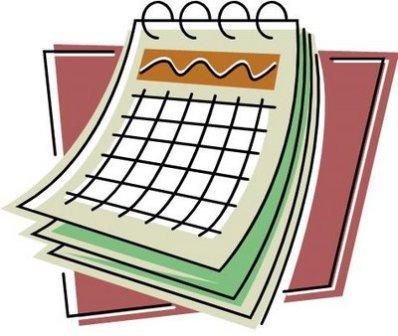Conquering Comps: Acing the PhD Comprehensive Exam
AUTHOR: Kathryn Reynolds
The PhD comprehensive exam is a major milestone in any doctoral degree. In our program, this consists of a written CIHR-style grant proposal and an oral defense. While the thought of “comps” can be stress-inducing, framing it as a learning experience will help you meet this milestone with minimal anxiety. I conquered my comps last semester, and I’m sharing some tips I learned along the way to help you ace yours, too!

Organization is key. Familiarize yourself with departmental deadlines and expectations (outlined at www.neurosciencemcmaster.ca/Grad-Requirements.html), and plan ahead. Your comprehensive exam should be completed between the 12th-20th month of your PhD and will take 6-8 weeks from start to finish. It may be beneficial to complete your comps in a semester free from commitments such as teaching or coursework. Based on these guidelines, I set my defense date first and worked backwards to determine my start date. I then wrote a project outline and used it to set smaller, attainable personal deadlines. Comps became overwhelming if I thought of it as one large project, but this approach helped me feel productive rather than stressed.

Diversify your committee. One of your first tasks is to choose your committee: your advisor, one supervisory committee member, and two additional neuroscience program faculty members (who are not on your supervisory committee). Select members whose specialties complement the different aspects of your proposal. For example, I asked one clinician, one molecular biologist, and one physiologist to join my committee. Each member was interested in a different aspect of my project, and their input helped me create a more well-rounded proposal.
Communicate with your committee. Your committee can help you formulate your hypothesis and aims, discuss the feasibility of your ideas, and outline their expectations for your defense. Frequent communication with your committee will lead to fewer surprises: if you propose something that your committee does not understand, I guarantee they will focus on it during your oral examination!
Create a project that enhances your thesis. This process is meant to be a learning experience, so maximize your learning potential! One way to build your knowledge is to modify familiar methods to answer a new research question. Conversely, I utilized new methods to investigate the signaling pathway I study, with the goal of broadening my understanding of neuroscience techniques.

Develop distinct aims. Your proposal will be divided into several specific aims, which form your strategy for tackling an overarching research question. Design at least one independent aim that does not rely upon the success of previous aims. Hypothetically, if one aspect of your proposal were to completely fail, the rest of the project could still proceed. In the real world of grant applications, this is a critical consideration! Also, make sure that you have a testable element to your proposal. While characterization is an important aspect of research, your committee also wants to see that you can formulate hypotheses and design appropriate experiments to test them.
Pare it down. As I became invested in my proposal, I found myself adding too many ideas. I was trying to propose 20 years of research, not 5! Remember that you can’t (and shouldn’t) cover absolutely everything. A straightforward proposal will demonstrate your knowledge without overwhelming your committee.
Talk to fellow graduate students. It’s true, misery loves company – but talking with your peers won’t just help you blow off steam. Once you’re deep into writing mode, explaining your ideas out loud will quickly identify areas that need improvement. Your peers may also be willing to share their proposals with you; I found that browsing other proposals helped me refine the layout and organization of my own.

Deep breaths! Once I submitted my proposal to my committee, I took a few days to organize my thoughts, catch up on sleep, and re-energize myself for the oral defense. As neuroscientists, we know that lack of sleep and excess stress will cloud our thinking, so don’t fall into that trap! On defense day, be honest with your committee if you can’t answer a question. They want to see you justify your choices and reason your way through answers in a mature and thoughtful manner, so follow up with a potential evidence-based explanation. Finally, be confident in your proposal and your preparation, and be proud of the hard work you’ve done!